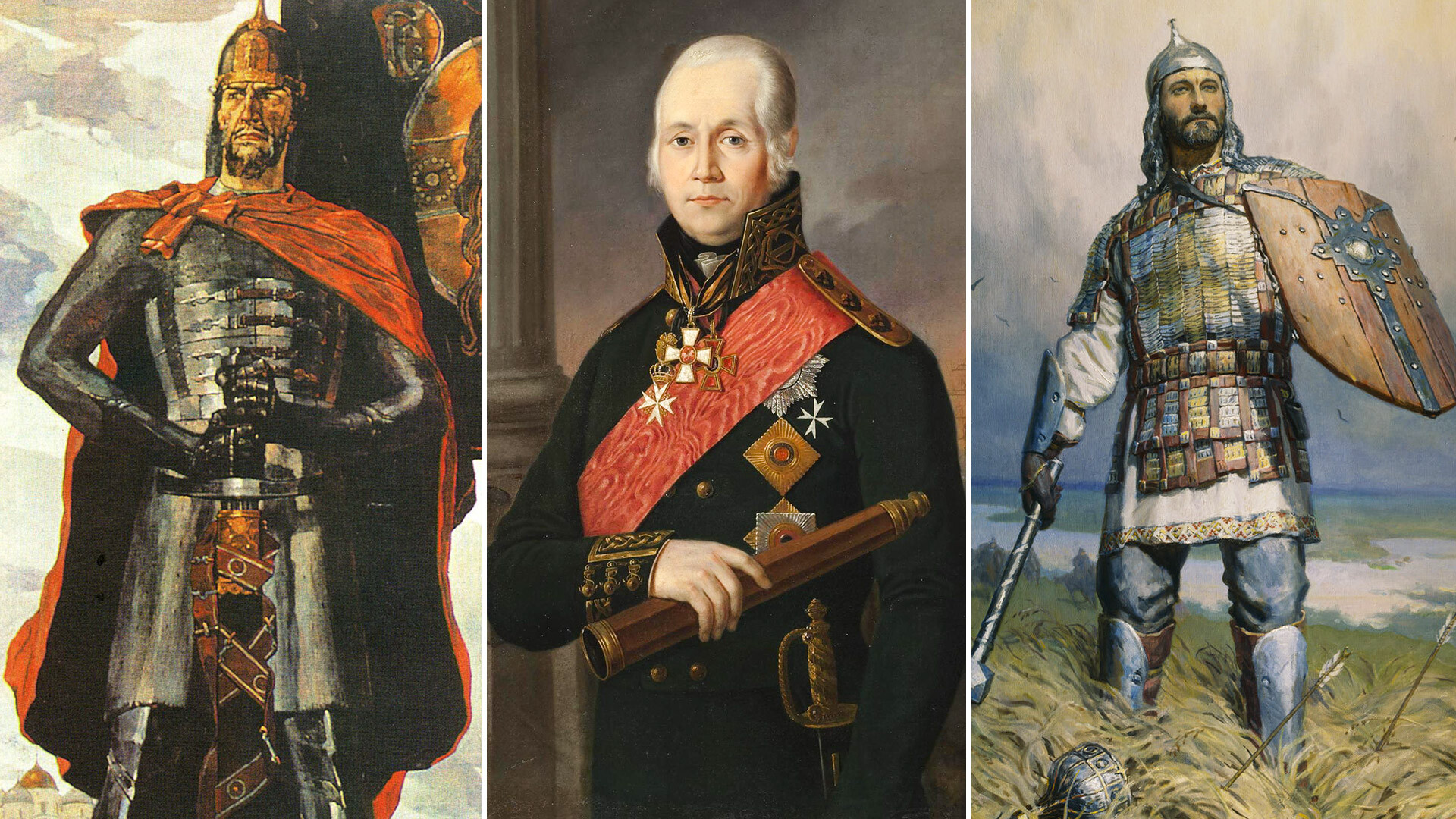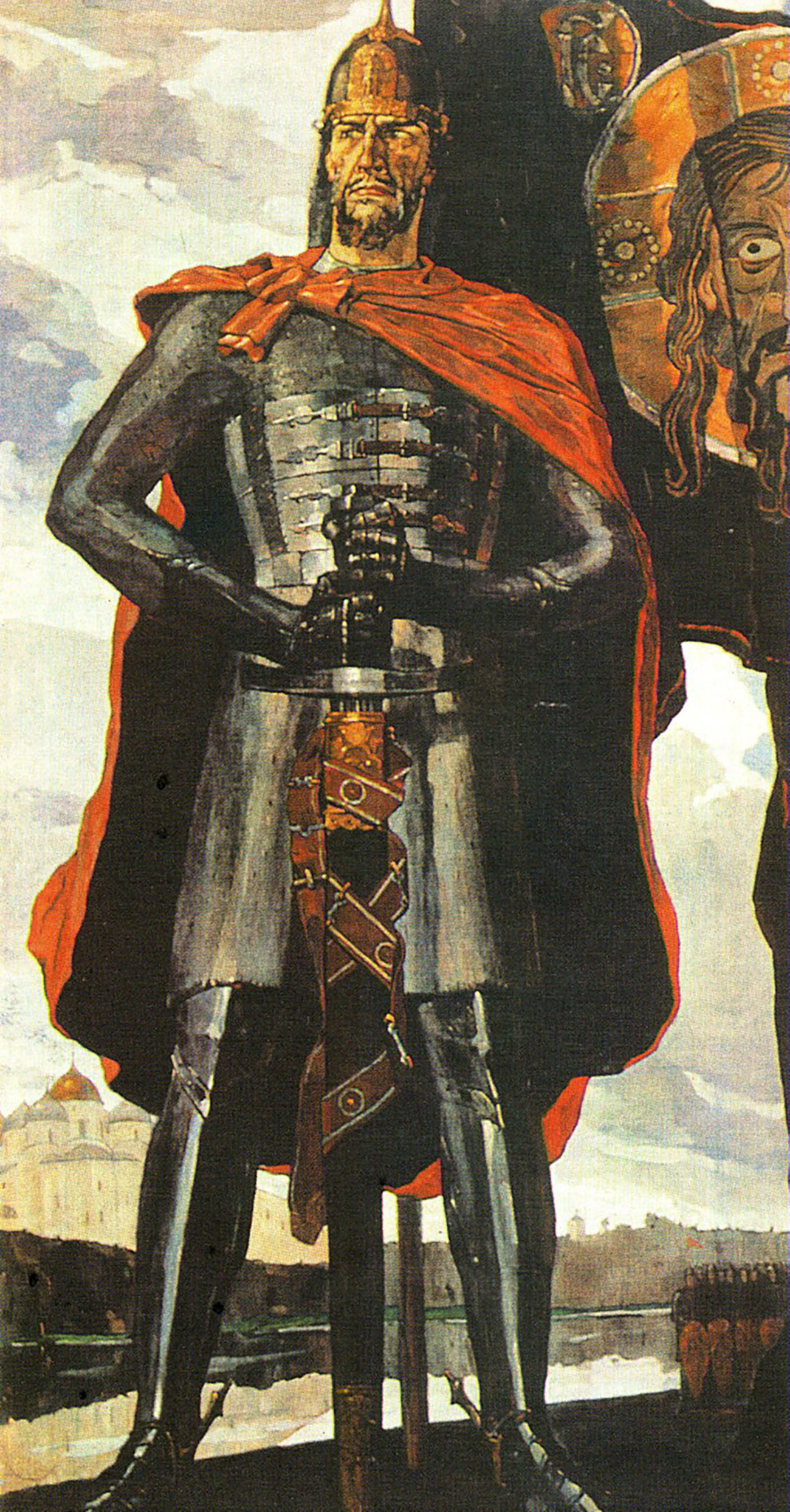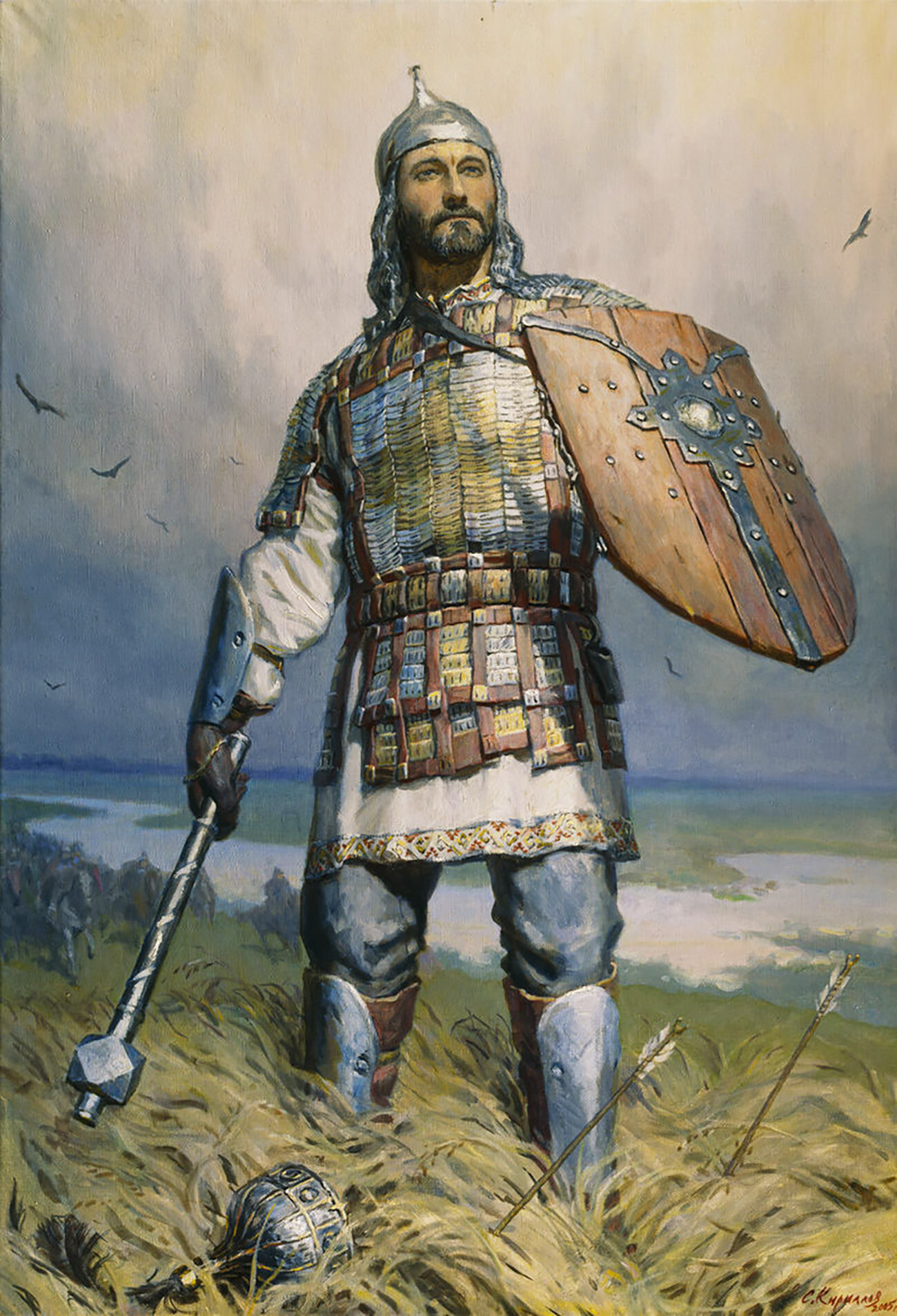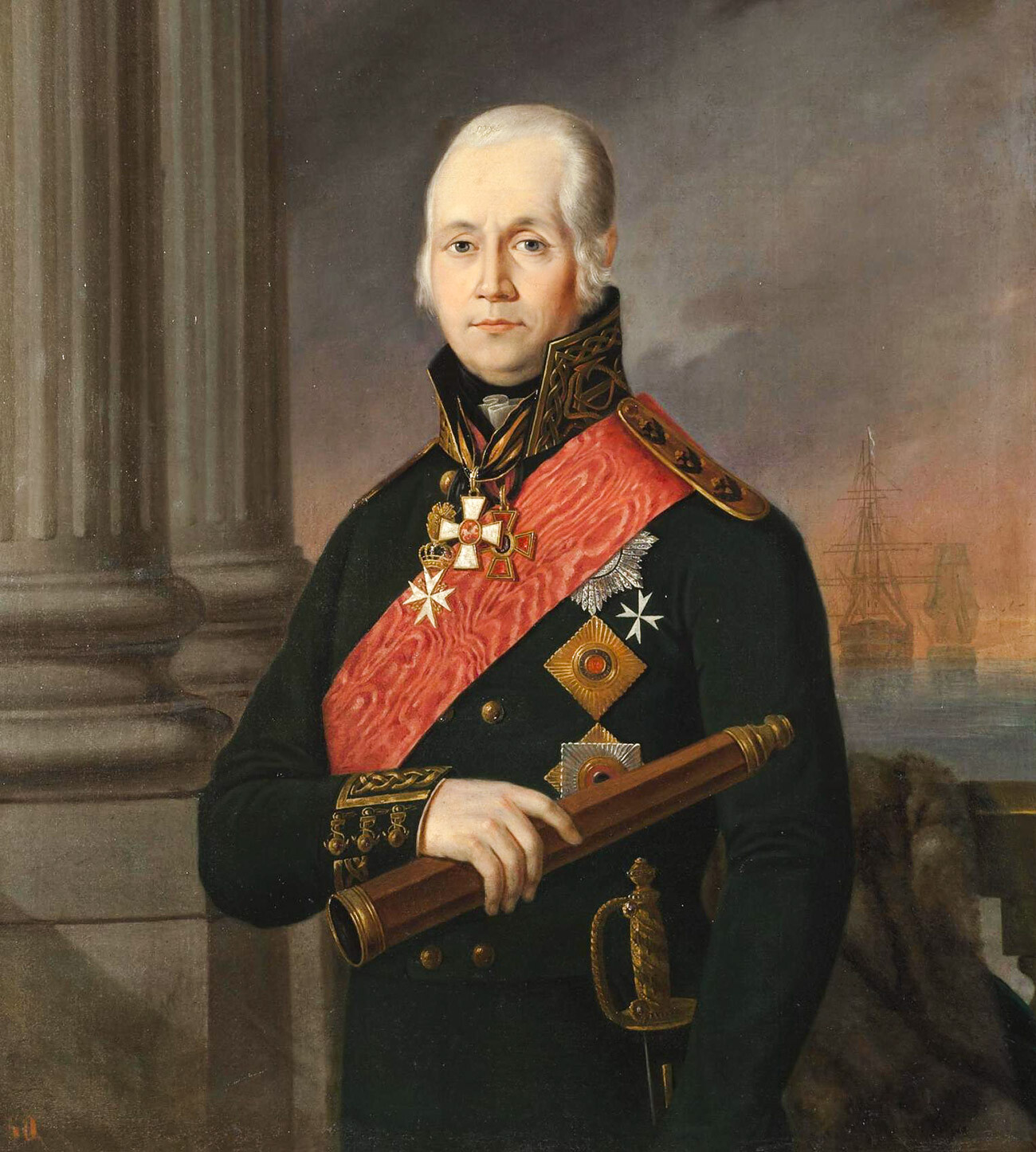

Alexander Nevsky.
Pavel KorinPrince Alexander Yaroslavich of Novgorod distinguished himself when, in the 1240s, after Russia had been subjected to a devastating invasion by the Mongols, he successfully defended her northwestern borders against a threat from the West.
The Prince’s main opponents were the crusading knights of the Teutonic Order and a number of ecclesiastical-feudal prince-bishoprics, who had settled in the Baltic Region. In 1242, by Lake Peipus (on the Russian-Estonian border), he won an impressive victory over them that went down in history as the ‘Battle on the Ice’.
The Swedes also posed a threat. At the time, they were actively conquering the lands of the Finns, while not omitting to probe Russia’s borders, from time to time. It was after his victory over the Swedes in the 1240 ‘Battle of the Neva’ that Alexander was dubbed ‘Nevsky’.
While fighting against the West, Alexander Yaroslavich conducted a cautious policy in the East, preferring to come to terms with the Mongols rather than engage in a hopeless conflict with a strong opponent. The Prince died in 1263. Shortly before his death, he took the Schema vow (a monastic vow to observe especially strict ascetic rules of conduct) under the name of Alexey.
As a defender of the Orthodox Christian faith, Alexander Nevsky was canonized in 1547. Famous historian Nikolai Karamzin wrote: “The good people of Russia canonized Nevsky as one of their guardian angels and for centuries attributed to him, as a new heavenly protector of the Fatherland, various events favorable to Russia.”

Dmitry Donskoy.
Sergey Kirillov (CC BY-SA 3.0)Alexander Yaroslavich’s great-great-grandson, Prince Dmitry Ivanovich of Moscow, gave an equally illustrious account of himself in the defense of Russian lands. He was dubbed ‘Donskoy’ after his brilliant victory over the Mongols in 1380.
The battle took place on September 8, 1380, at the place where the River Nepryadva flows into the Don at Kulikovo Field (not far from the city of Tula, south of Moscow). A combined Russian army under the Prince’s command faced the army of the Mongol ‘temnik’ (military leader), Mamai.
Swapping his princely garb for the clothes of one of his boyars, Dmitry Ivanovich fought like an ordinary soldier. “The Grand Prince himself had all his armor dented and punctured, but there were no wounds on his body and he fought the Tatars face to face, placing himself ahead of everyone in the first of the fighting. Many princes and commanders spoke to him again and again: “Prince, sire, do not aspire to fight out in front, but be behind or on a flank, or somewhere to one side.” But, he answered them: “How can I say, ‘My brothers, let us all move together as one,’ while I conceal my face and hide at the back?” This is how chronicles related his conduct during the battle.
The “fierce and mighty clash and savage battle” ended with the complete defeat of Mamai. Even though Russian lands were not immediately freed from political and economic dependency on the Mongols (that took place a hundred years later in 1480), a very important step in that direction had been taken.
In 1988, Dmitry Donskoy was canonized as a saint by the Russian Orthodox Church not just for his service to his homeland, but also for the righteous life the prince had led. Contemporaries noted his piety, Christian generosity of spirit, mercifulness towards those in need and high moral qualities.

Feodor Ushakov.
The State Hermitage MuseumAdmiral Fyodor Fyodorovich Ushakov is the only naval commander among the defenders of the homeland who have been canonized by the Russian Orthodox Church. The brilliant admiral emerged victorious from all the sea battles, large and small, that he had occasion to be involved in.
Ushakov’s finest hour was in the Russo-Turkish War of 1787-1791, during which he succeeded in inflicting a number of heavy defeats on the Turks. Success was frequently achieved in the face of superior enemy numbers - the naval commander did not shrink from risk or from acting in unconventional ways.
Paradoxically, the admiral who fought against the Turks so extensively and successfully led them into battle himself in 1798. In the ‘War of the Second Coalition’ against the French, Russia and the Ottoman Empire acted as allies and Ushakov took charge of a joint fleet that operated brilliantly in the Mediterranean.
The admiral then retired and devoted the last years of his life to the church, to prayer and to charitable works. He regularly visited a monastery and attended all the services, despite his venerable age (he was over 60), and stood during divine services alongside the monks. During Lent, he lived in a cell specially set aside for him at the monastery.
In 2004, Ushakov was declared a righteous warrior and canonized as an all-Russian saint. The act of canonization stated: “The strength of his Christian spirit was manifested not only in his glorious victories in battles on behalf of the Fatherland, but also in his great mercifulness, which astonished even his defeated enemies… Admiral Fyodor Ushakov’s mercifulness was extended to everyone.”
If using any of Russia Beyond's content, partly or in full, always provide an active hyperlink to the original material.
Subscribe
to our newsletter!
Get the week's best stories straight to your inbox